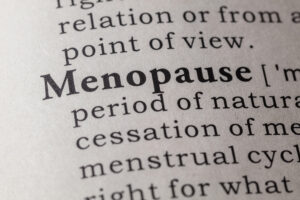news
Employers must offer menopausal support or face legal action, new guidance says
New guidance from the Equality and Human Rights Commission (EHRC), Britain’s independent equality and human rights regulator, on how menopausal women should be treated in the workplace, could see legal action taken against employers if they do not take appropriate steps of workplace support.

The EHRC’s Guidance for employers is designed to help employers understand legal obligations to support workers experiencing menopausal symptoms.
Menopause can be defined as when a woman’s periods stop due to lower hormone levels. This usually happens between the ages of 45 and 55, although age can vary.
Symptoms of menopause includes hot flushes, anxiety and brain fog and can often have long term debilitating physical effects, that may inhibit a worker’s ability to undertake their normal work activity.
Reasonable adjustments
The guidance includes considerations on the physical working environment such as room temperature, ventilation and ‘relaxing uniform policies’ to allow for cooler clothing.
Under the Equality Act 2010 failing to make ‘reasonable adjustments’ will come under disability discrimination if the symptoms have a ‘long-term and substantial impact’ on a woman’s ability to carry out their usual day-to-day activities, the EHRC said.
Under the Management of Health and Safety at Work Regulations 1999 employers also have a legal obligation to conduct an assessment of their workplace risks.
Research by the Chartered Institute of Personnel and Development, surveying over 2000 working women aged between 40 and 60, found that two thirds (67%) of those who experience of menopausal symptoms said it has had a mostly negative impact on them at work.
Of those who were negatively affected at work, 68% said they experienced more stress and 46% felt less physically able to carry out work tasks.
“This is concerning”
The Institution of Occupational Safety and Health (IOSH) responded to the news urging businesses to ensure they create supportive environments where employers are comfortable discussing menopause. Dr Karen Michell, an Occupational Health Specialist at IOSH, said: “Menopause can and often does have physical, mental and emotional effects on employees and their ability to cope with work. Yet very few workplaces and managers are knowledgeable on how to address work-related menopause issues and the preventive role that occupational health and safety can play.
“This is concerning. As with other health issues, employees should feel comfortable being able to discuss their symptoms with line managers and other colleagues and be able to request additional support which helps them in their roles.
“It is important that we prepare both workers and employers for what menopause might mean for them. Waiting until there is a pre-menopausal crisis is like acting once the horse has bolted the stable. Initiatives are needed to ensure we all understand the process of menopause and that employers create those supportive environments from the get go.
“We encourage employers to approach menopause in the workplace with a more holistic view that puts the spotlight on providing effective management practices, practical support and the adoption of a workplace culture of an open nature for those experiencing symptoms rather than solely focusing on superficial initiatives, such as the development of a specific policy on menopause.”
Further reading: Are employers adopting an inclusive approach to health and safety management?
“Fastest growing workforce demographics”
 Abigail Maino, Partner in the employment team at city law firm DMH Stallard said: “The new guidance from the EHRC comes off the back of an increased campaign of awareness about the impact of the menopause on employees, and the extent to which employers should be supporting employees who may be struggling with symptoms.
Abigail Maino, Partner in the employment team at city law firm DMH Stallard said: “The new guidance from the EHRC comes off the back of an increased campaign of awareness about the impact of the menopause on employees, and the extent to which employers should be supporting employees who may be struggling with symptoms.
“Aside from legal obligations as an employer, menopausal women are one of the fastest growing workforce demographics. It is an increasingly important issue for businesses of all sizes – most employers do not want to lose a large and experienced pool of talent.
“Historically, the numbers of employment tribunal claims for discrimination based on menopause have been low given the numbers of women affected by symptoms, and facing difficulties at work. This is likely to be because women have to rely on discrimination grounds of sex, age or disability rather than any direct menopause legislation, which to date has been resisted by the government.
“The increased awareness and guidance linking employers’ legal obligations and women’s rights is to be welcomed, and employers who support their workforce are likely to see the benefits through lower sickness absence and higher retention.”
Further reading:
Employers must offer menopausal support or face legal action, new guidance says
New guidance from the Equality and Human Rights Commission (ECHR) on how menopausal women should be treated in the workplace, could see legal action taken against employers if they do not take appropriate steps of workplace support.
Rhianna Sexton
SHP - Health and Safety News, Legislation, PPE, CPD and Resources Related Topics
Housing company fined more than £500k after worker suffers burns
SHP weekly top five
Company fined as worker has leg amputated


 Abigail Maino, Partner in the employment team at city law firm DMH Stallard said: “The new guidance from the EHRC comes off the back of an increased campaign of awareness about the impact of the menopause on employees, and the extent to which employers should be supporting employees who may be struggling with symptoms.
Abigail Maino, Partner in the employment team at city law firm DMH Stallard said: “The new guidance from the EHRC comes off the back of an increased campaign of awareness about the impact of the menopause on employees, and the extent to which employers should be supporting employees who may be struggling with symptoms.
Great to see the Government finally taking steps regarding this under-reported but very serious condition that has impacted the lives of so many in our working population
Really encouraging to see this, hope that businesses take note